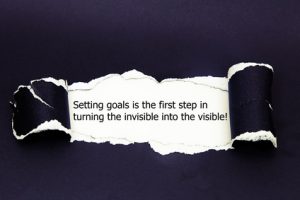LIFE COACHING FOR SINGLE WOMEN
 If you’re a single woman, it can sometimes feel like you’re part of a forgotten group. And if you’re a single woman of a certain age, it can feel like that times a thousand. Gone are the days where single women feel like they need to get married in order to feel fulfilled. Yet popular culture so often portrays them as lonely, unhappy and looking for a partner. The ways single women see themselves versus how they’re stereotyped in our culture are vastly different! So, what’s the real story?
If you’re a single woman, it can sometimes feel like you’re part of a forgotten group. And if you’re a single woman of a certain age, it can feel like that times a thousand. Gone are the days where single women feel like they need to get married in order to feel fulfilled. Yet popular culture so often portrays them as lonely, unhappy and looking for a partner. The ways single women see themselves versus how they’re stereotyped in our culture are vastly different! So, what’s the real story?
A 2018 study by creative marketing agency Hill Holliday and its market research company Origin sought to answer the question, “What do single women really want?” The answers offered a real life glimpse into their top priorities. Here’s a look:
- The number-one priority of single women was living on their own. Nearly half (44 percent) said it was what mattered most to them.
- Another top priority? Establishing a career. About one-third of single women (34 percent) listed their career over everything else.
- The third most popular priority among single women was financial security with 27 percent of respondents saying it mattered most to them.
The study states that, “on the whole, today’s single women have a strong sense of self and reject the outdated notion that they’re missing out on all that life has to offer.” More proof? Here’s a look at some of the characteristics single women most often use to describe people like them:
- Independent: 77%
- Confident: 54%
- Responsible: 49%
- Ambitious: 43%
- Strong-minded: 42%
- Adventurous: 32%
Perhaps as a single woman you see yourself in the characteristics listed above, but you’re feeling like you could use some assistance in reaching out and grabbing all of the opportunities in front of you. That’s where coaching comes in. Leah M Joppy and Associates can work with you to help identify your priorities, create a realistic action plan and set you on a course for living the life you’ve always wanted. Call us at 301-670-0051 or email leah@lmja.com to learn more.
And please take the time to read our article on the reasons why people seek out a coach.
Mindfulness During Uncertain Times
 With all of the uncertainty surrounding the COVID-19 pandemic, many of us are looking for ways to handle stress, stay focused and clear our minds a little. Between the constant stream of negative news, uncertainty and anxiety, it’s no wonder that our emotions are running the gamut right now. If you feel like you’re struggling to cope with it all, it may be the perfect time to learn a useful new skill: mindfulness.
With all of the uncertainty surrounding the COVID-19 pandemic, many of us are looking for ways to handle stress, stay focused and clear our minds a little. Between the constant stream of negative news, uncertainty and anxiety, it’s no wonder that our emotions are running the gamut right now. If you feel like you’re struggling to cope with it all, it may be the perfect time to learn a useful new skill: mindfulness.
You may have heard the term “mindfulness” thrown around, but what exactly is it and how can it help during times of crisis? Psychologist Jon Kabat-Zinn defines mindfulness as “paying attention in a particular way, on purpose, in the present moment and nonjudgmentally.” In short, to be mindful is to be purposeful about where you direct your attention. Instead of letting your thoughts run wild, you take a step back and become intentional about where you put your focus.
Mindfulness may sound simple, but it takes some getting used to if you’re new to the idea. As you practice moments of mindfulness on a regular basis, you will notice they come more naturally and easily to you. You’ll find it easier to take a few deep breaths and respond in a more patient and thoughtful way to a challenging person or situation. You’ll begin to slow down during particularly challenging parts of your day and not react to a problem hastily. You’ll be better able to focus. Best of all, you’ll become more aware of your thoughts in order to deal with the various stressors in your life.
So, how do you get started? Take a look at our next article on the basics of a mindfulness practice.
Basics Of A Mindfulness Practice
 Pay attention to activities you do everyday. This is a great starting point. Pick an activity you do everyday, like brushing your teeth or taking a shower. Then, get in the habit of truly paying attention to what you’re doing. When your mind starts to wander, bring your attention back to the feel of your toothbrush on your teeth, the sensation of washing your hair, etc.
Pay attention to activities you do everyday. This is a great starting point. Pick an activity you do everyday, like brushing your teeth or taking a shower. Then, get in the habit of truly paying attention to what you’re doing. When your mind starts to wander, bring your attention back to the feel of your toothbrush on your teeth, the sensation of washing your hair, etc.
Set aside some time and space. You don’t need a special mat or equipment, but you do need a peaceful, quiet area (if only for a few minutes!). You also need to allow yourself some time (again, if only for a few minutes!). Some people set a reminder on their phone to take breaks throughout the day.
Pay attention to your breathing. Breathing is a key mindfulness practice. It’s something we do naturally and it’s a good way to bring our awareness back to the present moment. Just taking three or four deep breaths while paying attention to them can help you calm down and improve focus.
Ground yourself physically. Sometimes concentrating on your breathing isn’t enough. In that case, concentrate on how the chair or floor feels under your body. Or put your hands on a table and notice how the surface feels. Other people enjoy running their fingers across an object like a stone. Any of these types of actions bring awareness of the present.
We are all dealing with different stressors due to the COVID-19 pandemic. For some, work responsibilities are greater right now and it’s difficult to juggle professional and personal duties. For others, work has slowed down or stopped and the anxiety of remaining productive and dealing with uncertainty can feel paralyzing. Research has shown that practicing mindfulness reduces activity in the part of your brain called the amygdala. The amygdala is central to switching on your stress response, so by practicing mindfulness, you’re reducing your background level of stress. And who doesn’t need a little of that right now?
Mindfulness takes practice, but the effort is well worth the reward! Leah M Joppy and Associates has been conducting webinars focusing on strategies we can all use to get through these challenging times. We can tailor a webinar that focuses on mindfulness practices, stress reduction and more. How can we help you? Call us at 301-670-0051 or email leah@lmja.com to learn more.
Coaching For Any Level
 Whether you’re starting out in your career or have spent years climbing the ladder, working with a coach provides an opportunity to achieve both short-term and long-term goals, as well as improvement in other areas. Wherever you stand in your job right now, chances are you’re wondering what the future holds in the next year or five years and beyond. Let’s start with a few questions that everyone should ask himself or herself, from entry level to executive:
Whether you’re starting out in your career or have spent years climbing the ladder, working with a coach provides an opportunity to achieve both short-term and long-term goals, as well as improvement in other areas. Wherever you stand in your job right now, chances are you’re wondering what the future holds in the next year or five years and beyond. Let’s start with a few questions that everyone should ask himself or herself, from entry level to executive:
- How do you feel about your career? Do you like going to work?
- Do you feel you’ve reached your full potential or do you feel like there’s something better for you out there?
- Is your career in alignment with your values?
- What areas do you feel could use improvement? Are there skill areas you’d like to learn and/or develop?
Maybe you feel like you’re too busy and just trying to deal with the day-to-day to really answer these questions. That’s where coaching can help. Here’s how:
Coaching for Entry Level Employees: You had such optimism and excitement starting out, but maybe that enthusiasm is starting to wane a bit. Your confidence might be a little tattered and you’re wondering if there’s potential in your career (or if you’ve even chosen the right field in the first place). Working with a coach provides guidance and accountability, as well as tools and strategies to help you build a fulfilling career that actually makes you excited to go to work!
Coaching for Middle Management: You’ve been working for a while and you’ve reached a management position. Now what? This is often the time where you can feel “stuck” and wondering if you’ve made the right career decision. You’ve invested a fair number of years in your present career, so would it make sense to make changes now? And what does the future hold? Is there potential for more and how can it be achieved? Coaching really delves into these areas and provides clarity and accountability for your future.
Coaching for Executives: Perhaps you’re thinking, “an executive has reached the pinnacle of his/her career. Why would coaching even be needed at this level?” Executives face a number of challenges that make coaching an effective and necessary component to unlock leadership potential. It not only maximizes an executive’s skill set, but it also develops a stronger team. Leadership is a skill that must be honed and working with a coach can help executives build a work environment that emphasizes employee trust and loyalty. And that’s just the beginning. There’s also building emotional intelligence, learning impactful communication and establishing a work/home balance, just to name a few.
Whether you’re just getting started or have been at it for years, working with a coach can benefit you at any level. Leah M. Joppy and Associates is ready to help you at any stage of your career. Call us at 301-670-0051 or email us at leah@lmja.com and let’s get started.
End Of Year Budget Needs – Popular Courses
 If you’re examining your EOY budget and have last minute money that needs to be spent, now is an ideal time to invest those dollars in your team. Think about both the victories and challenges that you’ve experienced so far this year. Is there a conflict that might have been resolved better? Are there areas that need improvement, like enhanced communication or trust? This month and next, we’re focusing on our most popular courses that have changed the way offices operate, communicate and deal with issues. They’re a great investment in the most important part of your department – your people:
If you’re examining your EOY budget and have last minute money that needs to be spent, now is an ideal time to invest those dollars in your team. Think about both the victories and challenges that you’ve experienced so far this year. Is there a conflict that might have been resolved better? Are there areas that need improvement, like enhanced communication or trust? This month and next, we’re focusing on our most popular courses that have changed the way offices operate, communicate and deal with issues. They’re a great investment in the most important part of your department – your people:
Here are two of our most sought-after courses that we’re focusing on this month:
Effective Interpersonal Skills: Interpersonal skills are sometimes referred to as people skills, soft skills or emotional intelligence skills. In a nutshell, they’re the way you communicate and interact with others. Valuable interpersonal skills include: teamwork, leadership, empathy, active listening and so much more. In this course, we delve into verbal and non-verbal cues, why they matter and how to build strong interpersonal skills that will enhance the harmony and productivity of your office.
Conflict Management Skills: Problems can arise on any team. Whether you’re a manager or employee, you will likely need to resolve conflict at some point in your job. This might involve solving an issue between staff members, yourself and a colleague or with someone outside your department. Our course helps you develop conflict resolution skills, deal with constructive criticism and gain important counseling, mediating and problem-solving skills.
If you have money left in your EOY budget to spend and are ready to invest it in your most important asset (your team!), Leah M. Joppy and Associates is ready to help! Call us at 301-670-0051 or email us at leah@lmja.com.
Q&A For Your Life Coach
 You’re ready to make some changes and you’ve decided that it’s time to work with a life coach. But now what? It can be tough to know what you should be looking for in a coach, especially if you’ve never worked with one. How do you make sure your coach will be the right fit for you and has the right background to address your unique needs? Here are a few questions to ask a potential coach to see if he/she is the best match:
You’re ready to make some changes and you’ve decided that it’s time to work with a life coach. But now what? It can be tough to know what you should be looking for in a coach, especially if you’ve never worked with one. How do you make sure your coach will be the right fit for you and has the right background to address your unique needs? Here are a few questions to ask a potential coach to see if he/she is the best match:
Question 1: Why did you become a coach?
Question 2: What is your background and work experience?
Question 3: What is your coaching experience? How about training and certification?
Question 4: What is your coaching specialty? Are there areas in which you primarily work?
Question 5: What is your approach or philosophy about coaching?
Question 6: What methodologies and tools do you use?
Question 7: What are some of your coaching success stories?
After you’ve consulted with a potential coach, evaluate what the experience was like interacting with them. Were they easy to get a hold of? Did they follow up with you in a timely manner after you reached out? Did they answer your questions thoughtfully and thoroughly? Typically the way someone acts during your initial exchange is a good indication of the way they will act if you’re working together.
A life coach is an important ally to help you achieve your goals, make big decisions and stay accountable for the things you want to achieve in life. If you’re ready to work with a life coach, Leah M. Joppy and Associates is ready to help! Call us at 301-670-0051 or email us at leah@lmja.com and let’s work together to make your goals a reality.
For reasons why someone would hire a coach, check out our article.
Overcoming Obstacles To Your Goals
 Thomas Edison said, “Many of life’s failures are people who did not realize how close they were to success when they gave up.” As we discussed in the previous article, there are so many reasons why people abandon their goals. What can we do to overcome some of these obstacles and start moving towards accomplishing our goals? Here are a few ideas:
Thomas Edison said, “Many of life’s failures are people who did not realize how close they were to success when they gave up.” As we discussed in the previous article, there are so many reasons why people abandon their goals. What can we do to overcome some of these obstacles and start moving towards accomplishing our goals? Here are a few ideas:
Acknowledge Fear: There’s an acronym for FEAR: False Evidence Appearing Real. We’ve all experienced fear, but the key is to acknowledge where you fears lie and what fears are true and what aren’t based in reality. Ask yourself, “what’s the worst that could happen?” And then, “what’s the best that could happen?” Almost always, the good outweighs the bad.
Quiet those Nagging Thoughts: You know the ones: “I don’t have time to work towards my goals.” “I’m already maxed out!” “I’m not good enough to achieve [insert goal here].” Bring them to the surface and acknowledge them. They’ve been there all along and they’re holding you back. By becoming conscious of those nagging voices in your head, you can face each thought and develop a plan to move past them.
Just start: Maybe it’s 5 minutes a day and you set a timer. Put aside the “someday I’ll do it” and “when I’m ready” and just accomplish one task. However small it may seem, the act of doing SOMETHING can build confidence and start to put a goal-achieving plan into action.
There are so many things that can stop us from making our goals a reality. But with the right tools and mindset in place, we can calm the voices in our head saying we can’t do it and move towards meaningful change. Leah M. Joppy and Associates is ready to help! Call us at 301-670-0051 or email us at leah@lmja.com and let’s work together to make your goals a reality.
Starting Points for Achieving Long-Term Goals
 All too often, we buy into the idea that we have no control over our lives. The circumstances of life make it too impossible to plan for the next month, let alone three or five years into the future. It’s challenging to own up to the fact that we make choices all the time that determine our future and do have responsibility over our lives. Once we realize we can determine the outcomes of our life and external circumstances don’t always control us, we can begin mapping out long-term goals. It’s not just about 2019, it’s looking into 2020 and beyond.
All too often, we buy into the idea that we have no control over our lives. The circumstances of life make it too impossible to plan for the next month, let alone three or five years into the future. It’s challenging to own up to the fact that we make choices all the time that determine our future and do have responsibility over our lives. Once we realize we can determine the outcomes of our life and external circumstances don’t always control us, we can begin mapping out long-term goals. It’s not just about 2019, it’s looking into 2020 and beyond.
As we mentioned in the previous article, achieving long-term goals requires commitment and not just interest. You need to be all in or else the excuses, circumstances, and challenges of life start to derail the process. But how do you get started? Here are a few tips to get you thinking about your long-term goals and how you want to achieve them:
- Write goals down to crystallize them and give them force.
- State each goal as a positive statement.
- Be precise by adding dates, times, amounts, etc. to increase your level of accountability.
- Set priorities to avoid feeling overwhelmed.
- Invest in a coach. An objective and non-judgmental sounding-board can be very helpful.
Maybe some of those ideas gave you food for thought. It’s just the beginning of what you can do to set attainable long-term goals, both personally and for your team. Please call Leah M. Joppy and Associates at 301-670-0051 or email us at leah@lmja.com and let’s work together to plan your long-term goals and make them a reality!
It’s Not Just About 2019: The Importance of Long-Term Goals
 A new year is upon us and that means you’ve probably heard this question dozens of times: “What is your New Year’s resolution?” Whether it’s losing weight, organizing our homes, or finding a new job, our society is in love with making resolutions at the start of every New Year. But we’re not so in love with keeping them. Only an estimated 8% of people keep their New Year’s resolutions and those are only short-term goals! Ask someone the dreaded question, “where do you see yourself in five years?” and you’ll likely be met with a little bit of fear and anxiety. Why are long-term goals daunting to so many? Are we doing ourselves a disservice in life by merely thinking short-term and not planning for years in the future? The short answer is “yes.”
A new year is upon us and that means you’ve probably heard this question dozens of times: “What is your New Year’s resolution?” Whether it’s losing weight, organizing our homes, or finding a new job, our society is in love with making resolutions at the start of every New Year. But we’re not so in love with keeping them. Only an estimated 8% of people keep their New Year’s resolutions and those are only short-term goals! Ask someone the dreaded question, “where do you see yourself in five years?” and you’ll likely be met with a little bit of fear and anxiety. Why are long-term goals daunting to so many? Are we doing ourselves a disservice in life by merely thinking short-term and not planning for years in the future? The short answer is “yes.”
What if you positioned this year differently and lived your life based on what you intend to do 3 or 5 years from now? Although you don’t have a crystal ball and can’t plan for what will happen in the future, you can position yourself to achieve the goals you have for your life. One key is how to view your goals: they’re a means and not an end. Ask yourself the question, “Am I merely interested in achieving these goals or am I truly committed?” Commitment means there are no excuses and you’re willing to do whatever it takes. Interest simply means there will be excuses and circumstances along the way telling you why you can’t do something.
True commitment means you’re willing to put aside the idea that you’re not in control of what happens in your own life. You’re ready to live a consciously designed life based on the following principles:
- YOU are in control of what happens to you; you are capable of positioning yourself and making a plan.
- YOU have the ability to make things happen and won’t let external circumstances derail your goals.
- YOU are responsible for the choices you make.
- YOU are willing to stay motivated and value your goals, even when life is difficult.
The idea behind long-term goal planning is: Don’t just plant a tree, plant an orchard. And don’t view 2019 as just one year, but think of how you can begin writing your story for 2020, 2021, and even farther. We have some powerful activities that will help you and your team think beyond the typical New Year’s resolutions and begin creating meaningful and attainable long-term goals. Call Leah M. Joppy and Associates at 301-670-0051 or email us at leah@lmja.com.
It Takes All Kinds – Relationship-Oriented Vs. Task-Oriented People
 It’s often said that “variety is the spice of life”. And you’d be hard pressed to find more variety than when you walk into an office filled with all different types of people. Communication can certainly be challenging when you’re dealing with individual personalities and preferences. The following list breaks down four different types of communication styles based on whether an individual is relationship-oriented or task-oriented and slow-paced or fast-paced. Do any seem familiar to you?
It’s often said that “variety is the spice of life”. And you’d be hard pressed to find more variety than when you walk into an office filled with all different types of people. Communication can certainly be challenging when you’re dealing with individual personalities and preferences. The following list breaks down four different types of communication styles based on whether an individual is relationship-oriented or task-oriented and slow-paced or fast-paced. Do any seem familiar to you?
Type 1 is slow-paced and relationship-oriented:
- Likes to talk about family, activities, and other personal information
- Appreciates you taking time to develop a personal relationship or business friendship
- Prefers to be given information verbally and face-to-face
- Doesn’t like to be pushed into making quickly decisions
Type 2 is fast-paced and relationship-oriented:
- Likes to tell stories based on personal experiences
- Takes time to develop a personal relationship or business friendship with you
- Wants key facts and not a lot of detail
- Makes decisions quickly primarily based on personal relationships
Type 3 is fast-paced and task-oriented:
- Prefers to get down to business quickly
- More interested in getting the job done than being your friend
- May ask a lot of questions and makes you feel like you’re being “grilled”
- Makes decisions quickly based on facts
Type 4 is slow-paced and task-oriented:
- Prefers to not make small talk, but talk about the business at hand
- Likes to have a lot of backup data
- Doesn’t like to be pushed into making quick decisions
- Tends to analyze all details before making a decision
So, which communication style do you think you have? Do you definitely fall into one category or are you a combination of 2, 3, or all 4 styles. Many people differ based on their environment. For instance, a person’s communication style at work may be completely different than in a social setting like a party. We have some fun, high-energy team activities that will help you learn more about your distinct communication style, as well as those you work with closely!
Please call Leah M. Joppy and Associates at 301-670-0051 or email us at leah@lmja.com to learn more.